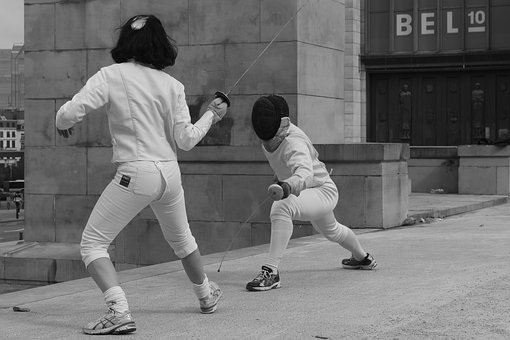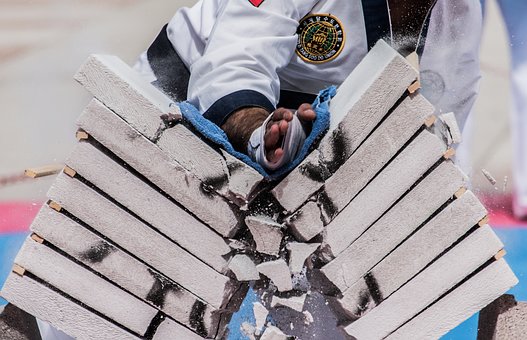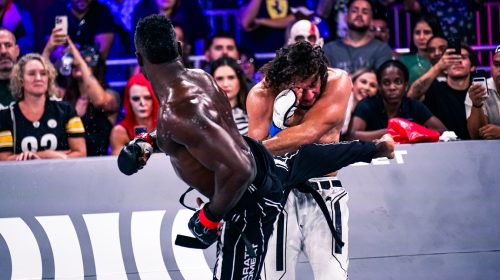
Injured in Martial Arts Class? Here’s What You Need to Do
Especially if your daily life involves occasionally encountering dangerous situations or mingling with bad people, nothing is more important than having some self-defense skills. Martial arts may collectively encompass a wide range of combat skills, including karate, taekwondo, kung fu, and judo, among others. They are commonly taught in the military, law enforcement, and private security companies for obvious reasons.

Many people also take martial arts as a hobby since it is not illegal to have combat skills as long as you don’t misuse them. They are offered in many gyms and training facilities even in your local area or nearby. Nonetheless, some local martial arts sessions can be quite hardcore, which only means one thing. It is not unusual for learners to sustain injuries during training.
In this post, we shall explore a few things you can and need to do when injured in a martial arts class.
1. Get In Touch With a Lawyer
As earlier mentioned, martial arts injuries are not uncommon. They may range from sprains to strains, bruises, and cuts. Severe injuries like broken bones are also not unheard of. If the injury is related to the negligence of the trainer or the recklessness of another person, however, you may have the right to seek legal compensation. A slip-and-fall accident in the dojo could qualify for this. As explained by the legal team at Warnett Hallen, a personal injury lawyer can help you get compensation for your pain and suffering. Depending on the magnitude of the injury and the type of accident, they might help you recover compensation for:
- Your pain and suffering
- Medical treatment costs
- Lost wages
- And much more
2. Think of the Injury as an Opportunity
It may sound absurd but injuries can actually be beneficial. We all get injuries but the difference lies in the mindset. This is where there is a difference between your chosen dojo coach and a doctor. For a coach, he/she feels like it’s a deliberate choice to perfect some skills, while a doctor may feel like a victim. During the trainee’s recovery period, he/she can perfect some of the skills as a result, while potentially learning new ones. If for example, you injured your knuckles, you will find it more important to perfect on footwork. Even with policies like no punching, kicking, or bags, minor injuries still occur when practicing martial arts. What makes the difference is how you react to them.
3. Accept the Pain
This applies more to the injuries that come with the art. Accepting pain is a giant step towards desensitizing yourself. What your trainer will tell you is that you should not stop training. Of course, if the injury is quite severe, you will need to seek medical attention first. As and when you recover, you can focus on building your skills. It’s said that one big problem is anticipation. That is, you expect something to hurt more even if it doesn’t hurt as much by anticipating the pain itself. What your trainer will also advise you is, focus on the technique and don’t let anticipation get in the way. You may get broken toes but as a result of that, you can let yourself learn new tactics to counter any setbacks that may come about, causing a similar injury.
Martial art isn’t about just fighting but your neuroscience. You train your brain to focus on important things and ignore the irrelevant. This is in the case of decontextualizing some forms of senses like what you can do when you see an incoming punch. This will enable you to control your arousal and focus on rage and adrenaline as an advantage.
4. Do Some Training
It is said, any training is better than no training. If, for example, you have a serious injury, you can try and do a five seconds training according to what you can manage. Most people see injuries as “downtime” but that is where they go wrong. At the end of the day, there is only time. Experts recommend using the time you have effectively as time passes whether you use it or not.

5. Find Something Else You Can Do
Injuries in martial arts can be depressing but finding something to do can help you in your recovery. You can always go to class and make notes, meditate or even visualize. Meditation itself is a remedy. It gives you a sense of control but this doesn’t entirely mean you’ll win a fight. This will not make you screw up since your mind is already channeled to the feeling of not getting hurt. If you have injured your arm, you can focus on your legs. Remember that just because you can’t train everything doesn’t mean you can’t train on something.
In conclusion, the steps you should take after a martial arts injury will depend on several factors. It is about how the injury occurred, what caused it, and how severe it is. In any case, the above few tips should help you maneuver the aftermath of an MA class injury.


























